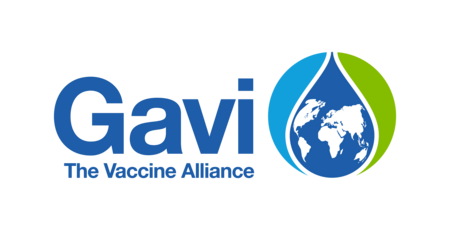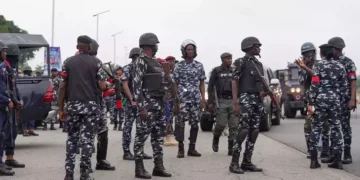GAVI, Vaccine Alliance has pledged collaboration with the Kaduna State government and national stakeholders.
This was revealed during an engagement visit by Jessica Crawford, the senior country manager of the Gavi Secretariat for Nigeria to the Kaduna State deputy governor, Dr Hadiza Sabuwa Balarabe.
Crawford reaffirmed GAVI’s mission to save lives and improve health by increasing access to life-saving vaccines, noting that Kaduna remains a priority in Nigeria’s immunisation landscape, adding that “In the last two years alone, we have invested millions of dollars in Kaduna State.”
“We are now looking forward to even more strategic engagement with the state government, the National Primary Healthcare Development Agency (NPHCDA), the Federal Ministry of Health, and our alliance partners and the focus is to ensure that our investments align with the state’s needs—especially in tackling zero-dose challenges in 10 high-burden LGAs.”
According to her, Zero-dose children are those children who have never received a single dose of any routine vaccine, which she said remain a pressing issue in Nigeria.
The Gavi country manager emphasised Gavi’s commitment to reducing the burden, highlighting the role of community-led programming and robust state partnerships in sustaining results.
“We are committed to supporting routine immunisation performance and strengthening the broader primary healthcare system. But these programmes must be led by the state and tailored to meet the needs of communities,” she added.
Also speaking, Hassan Shehu, Head of Routine Immunisation at the National Primary Healthcare Development Agency (NPHCDA), acknowledged the crucial role Gavi has played over the years, especially in funding and providing technical support.
He emphasised that the federal government remains committed to fulfilling its counterpart obligations.
“Gavi is here to support the country, but the government has its own responsibilities. Through NPHCDA, the federal government procures vaccines for routine immunisation across states. While Gavi provides funding, cold chain equipment, and system strengthening, the states are expected to play their part particularly through counterpart funding and policy commitment,” he said.
Usman noted that Gavi’s investments are not merely financial but catalytic, often mobilising governments to do more.
Also, the deputy director of Routine Immunisation, Bakunaga Garba Bello raised concern over Nigeria’s high burden of zero-dose children who have never received even a single dose of the pentavalent vaccine (Penta-1), which is typically administered at six weeks of age.
He explained that by global operational definition, a child aged between 12 and 23 months who has not received Penta-1 is considered a zero-dose case.
He noted that Nigeria unfortunately has the highest proportion of zero-dose children globally, with about 2.3 million recorded in 2022. Due to several intervention efforts, the number has slightly reduced to around 2.1 million, but it remains a significant challenge that reflects gaps in routine immunisation coverage.
Bello stated that Gavi and the federal government, through the National Primary Health Care Development Agency (NPHCDA), are making concerted efforts to address the zero-dose burden by increasing routine immunisation coverage and strengthening the health system.
He highlighted Gavi’s substantial support under the Health System Strengthening (HSS-2) initiative, which covered eight states, including Kaduna. He revealed that Kaduna is among six states—others being Sokoto, Zamfara, Kebbi, Kano, and Bayelsa—selected for a deep-dive engagement to identify and address immunisation challenges, with the Kaduna State deputy governor leading the state’s task force on immunisation.
To tackle vaccine hesitancy and improve uptake, Bello stressed the importance of community engagement. In collaboration with partners, he noted that a national Risk Communication Team has been established to work directly with communities using gatekeepers such as religious and traditional leaders.
This team applies a strategic community engagement approach to educate families on the importance of routine immunisation, aiming to build trust, combat misinformation, and ensure long-term success of vaccination campaigns. “Immunisation is not just about giving vaccines—it’s about building confidence and ensuring no child is left behind,” he concluded.
Earlier, Kaduna State deputy governor Dr Balarabe said, the leadership of the NPHCDA, the technical and programmatic expertise of UNICEF, the catalytic investments of the Bill & Melinda Gates Foundation, and the life-saving vaccine delivery support of the Vaccines Alliance (Gavi), has collectively made a profound difference in Kaduna State health sector.
She said, the impact of the collaboration is visible, adding that more children are protected, more mothers are informed and empowered, and more communities are embracing health-seeking behaviours, while the primary health care system is steadily becoming stronger, more resilient, and better equipped to respond to the needs of the people.











